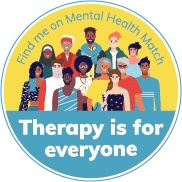Burning Out or Burning Bright: Navigating the Flames of Overwhelm

I can feel it creeping up…burnout. Never a good thing for a therapist nor anyone really but it happens. The feelings of overwhelm and exhaustion. I know when this starts to happen as my body and mind yearn for peace and rejuvenation. I usually go find a good hike somewhere or look for adventure. Being in nature brings me tranquility and revitalization not only for myself but for my career and family. However, it took me a while to identify what these feelings were and what to do when I started feeling this way. In the past, I have gotten to the point where if I were a candle, I’d be a lumpy, stub barely burning. I decided then I had to do something different so first things first…
Identifying Burnout
Burnout is a state of physical, emotional, and mental exhaustion caused by prolonged stress. It can affect anyone, regardless of profession or lifestyle. In this post, we will explore practical steps to overcome burnout, manage stress, and achieve an improved work-life balance. Let's dive in and reclaim our energy and motivation!
Recognizing the Signs of Burnout
Exhaustion: Feeling constantly tired and drained, both physically and mentally. You may want to stay in bed or on the couch. You may also find yourself more irritable.
Decreased motivation and productivity: Finding it increasingly challenging to stay motivated and deliver high-quality work. Sometimes this looks like avoidance behaviors where you call into work, miss deadlines or avoid projects altogether.
Emotional exhaustion and detachment: Feeling emotionally drained and becoming detached from work and personal relationships. Zoning out may become common as well as increased distracting activities (tv, gaming, etc.). You may also feel disconnected from your loved ones.
Physical symptoms: Experiencing headaches, frequent illnesses, and changes in appetite or sleep patterns. This can also include stomach issues, not feeling rested or recuperated, overeating or not eating enough, and having difficulty falling asleep or staying asleep.
Understanding the Causes of Burnout
Work-related factors:
Heavy workloads, long hours, lack of control, and inadequate support or recognition.
Personal life factors: Family or relationship issues, financial difficulties, and other personal stressors.
Personality traits and tendencies:
Perfectionism, high self-expectations, and difficulty setting or maintaining boundaries.
Imbalance between demands and resources:
When the demands placed on us outweigh the resources available to cope with them.
Steps to Overcome Burnout
Prioritize self-care and relaxation: Make time for activities that rejuvenate you and prioritize your well-being. Even if it’s only for a few minutes, a little can help.
Set boundaries and manage workload: Learn to say no, delegate tasks, and break projects into manageable chunks. Take a good look at your “plate”. Is it balanced or does it look like Thanksgiving overload? What can you take off of it?
Seek social support and connection: Surround yourself with supportive friends, family, or colleagues who understand and validate your feelings. Try asking yourself, does this person add to my life or take from it?
Practice stress management techniques:
Engage in deep breathing exercises, practice yoga or meditation, or find other techniques that help you relax. What do you currently do? Is it a healthy way to manage stress?
Explore and pursue passions outside of work: Engaging in hobbies and activities unrelated to work can provide a much-needed escape. What brings you excitement or passion?
Implementing Self-Care Strategies into Daily Routine
Exercise regularly: Engaging in physical activity boosts endorphins, serotonin, and dopamine which helps reduce stress. Getting at least 30 minutes of heart pumping activity is ideal but start where you’re at. If you can only exercise for 5 minutes at a time, great! Some is better than none.
Get enough sleep: Prioritize a consistent sleep schedule and create a restful sleep environment. Reduce screen time, use blue light blocking filters, try white noise or sleep stories, create a dark room with room darkening shades or blinds, and avoid naps, caffeine and alcohol in the evenings.
Practice mindfulness and meditation: Mindfulness exercises and meditation can help calm the mind and reduce anxiety. If meditation is difficult initially, try a short 5 minute guided meditation. Mindfulness can also look like taking a moment to recognize the beauty of the sky, truly enjoying a hot or cold drink, or practicing gratitude.
Engage in activities that promote joy and relaxation: Find activities you enjoy, whether it's reading, painting, or spending time in nature. Explore where you feel rejuvenated, joyous, and peaceful. Where is your happy place?
Take regular breaks and vacations: Plan breaks during the workday and use vacation days to unwind and recharge. Take the 5 or 15 minutes to practice deep breathing, walk outside, or even sit in your car if needed. A vacation does not necessarily have to be expensive or out of your budget. Maybe it’s a staycation where you turn off your phone, grab your comfy pajamas, and watch a series or play your favorite game.
When all you’re doing still isn’t working….
If self-help strategies are not providing relief, it may be time to seek professional guidance. If you notice burnout is greatly impacting your relationships, work role, and overall functioning, please reach out to a therapist to help you navigate through these issues.




